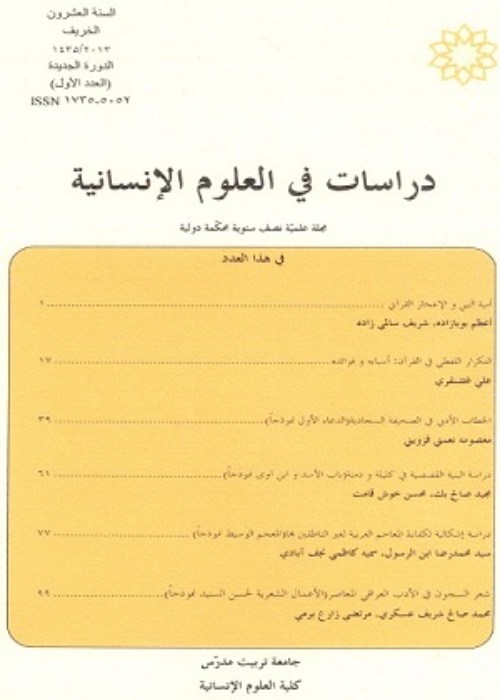The Challenge between Memory and the Future Behavior Plan in the Holy Qur’an: Reading the Semiotic of Cognitive Culture of Miracles in Surah Isra (Verses 90-95) Based on the Tartu School
The semiotic space is distinguished in a certain period and formed through the cultural signs that are sent by the sender of message. Culture absorbs what is compatible with it in the course of its tremendous influence on the external environment, and then it may change texts that it could not resolve. The study of the semiotic space of the Qur’an includes the vision of the holy book. The Qur’an extracts the prior cultural structures from its historical or psychological context and characteristics and establishes new cultural systems without ignoring or separating these historical and cultural cognitive systems. This process is accomplished only through continuous semiotic breakthroughs. In fact, instead of the external space invading the internal space, it is the holy book that obliterates the unorganized and uncultured space that was already established in the semiotic memory of the society. On a higher level than the myth and legend that the polytheists demanded in Surah Isra, the Qur'an begins to establish knowledge in the framework of "miracles" in order to re-establish a view completely opposite to the mythological tendency of the infidels. This article, with a descriptive-analytical approach, and in accordance with the semiotic-cultural vision of the Tartu School, wants to study the revolution brought about by the Qur’an on both the practical and theoretical levels. In the meantime, the existence of a mythical hero who is capable of doing extraordinary things was erased from the cultural memory by the Holy Qur'an, and prophecy clearly took on a human form and took on a new form in a context full of challenges. Finally, by transforming the concept of the legendary hero, the Holy Qur'an established and re-established the rules of the miracle of prophecy.
- حق عضویت دریافتی صرف حمایت از نشریات عضو و نگهداری، تکمیل و توسعه مگیران میشود.
- پرداخت حق اشتراک و دانلود مقالات اجازه بازنشر آن در سایر رسانههای چاپی و دیجیتال را به کاربر نمیدهد.


